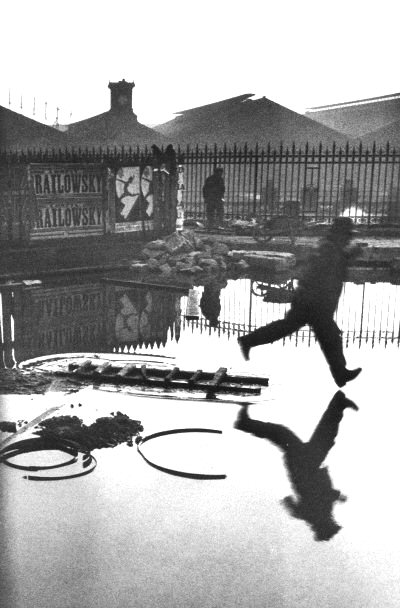I won't address the obvious (no film, virtually unlimited images, product lifecycle... ect.) But will add something else for my $0.02. Fundamentally, digital has changed photography (and by that I mean, strictly, the images produced, the characteristics of the final output... "the picture") because it changed the very "nature" of the images created:
1. Most images are captured on a plane that is extremely small now. In the film days, the "upper limit" of the ability of a photographic tool's "quality range" was determined mostly by the size of the film plane that the lens focused the image on. From large format, to medium format to small format - each step to a smaller size, reduced the outer limit of the quality of the image produced in the hands of a technically competent amateur or professional photographer. Ansel Adams' prints would not have had the enduring impact they had if they were shot with a 35mm camera - even a Leica with one of their top of the line lenses. However, the trade-off was equipment size. 35mm was deemed "good enough" for most applications. HCB could not have shot what he shot walking around France with a large format camera. Also, the number of images produced increased with smaller format and the speed with which you could create these images increased as you stepped down the film plane scale.
2. Digital took this to the next level. The "focusing plane" of a digital sensor is significantly smaller that the small format frame of 35mm film for most users. Thus, the outer limit of quality is not as great as that of a film camera. It's "all" (mostly) about the size of the plane the lens is focusing the image on. The size of this plane is 3/4ths the determining variable of the technical "outer limit" of the quality capable of the photographic tool with the other variable being (the vastly overrated in modern times) the technical specs of the lens.
3. However, digital has vastly decreased the number of "spoiled" images because state-of-the art computer chips are able to handle all the variables associated with taking a technically acceptable image - including focus, that in the film era resulted in unusable images. The spoil rate is pretty high (and costly) in film, especially for consumers but also for enthusiasts and pros. You pay for those spoiled shots. And sometimes that includes a whole roll.
Thus digital has "moved the curve" - far fewer spoiled images, and there is no cost for spoilage. Most spoiled images have less to do with shots being out of focus, blurry due to too low a shutter speed, way under/over exposed to to a mis-set aperture, and especially ruined shots due to an improperly set flash... than compositional issues or "somebody had their eyes closed" in the "say cheese" group shot. Even harsh color casts due to tungsten or florescent lighting is largely eliminated. This is a significant quality improvement - but on the left side of the bell-shaped curve with the trade-off being that the cameras are incapable of producing images of higher "quality" (sophistication may be a better word choice here...) on the right side of the bell-shaped curve.
4. Another underrated change regarding the digital revolution is the compact digital super zoom cameras. Leveraging the smaller film plane and combining it with image stabilization technology enabled small light cameras that are capable of hand-holding shots and getting acceptable images with zoom lenses no bigger than a standard 50mm in the film world that would have to have been extremely large, heavy, (and expensive) stationary lenses requiring them to be mounted on a tripod in the film era. This is an unheraleded breakthrough, and these cameras are excellent street shooters. As the old adage goes - "Wanna take better pics? Get closer to the subject..." These cameras allow you to "get closer" from across the street. One of these cameras should be part of every "street photographer's" arsenal. Used, many are dirt cheap especially the "early" Panny's with excellent ASPH Leica branded/designed lenses from way back 5 years ago.


